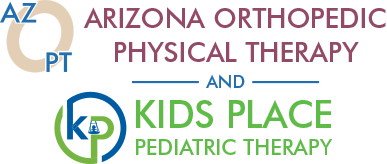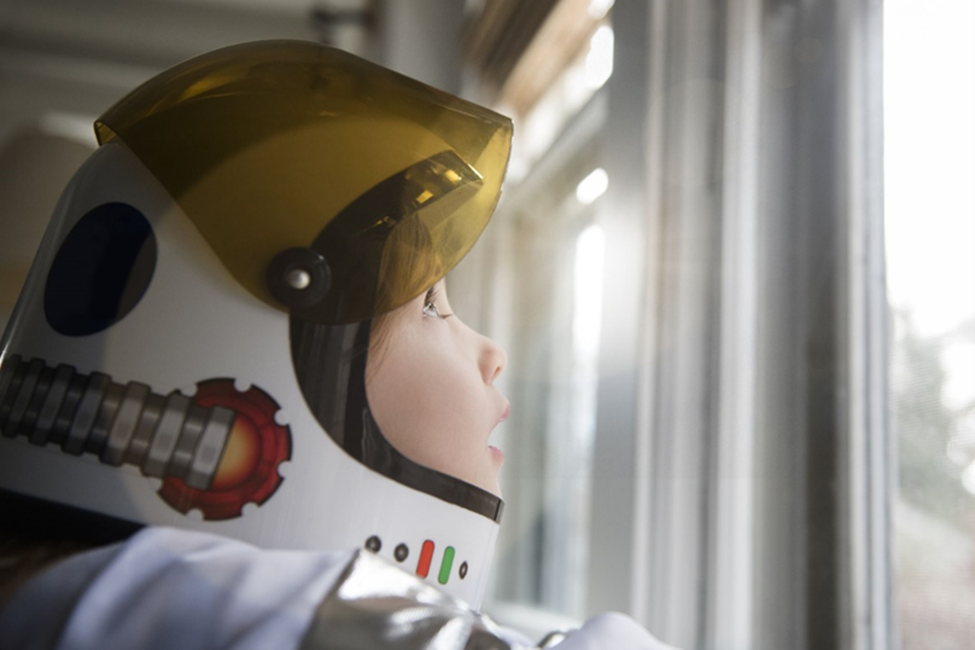What is Occupational Therapy for Kids?
by Thomas Stevens, OTR/L
Kids Place Pediatric Occupational Therapist
Your pediatrician has referred your child to occupational therapy and you’re thinking to yourself – “my child doesn’t have a career, what in the world is his occupation?” Not to worry, we won’t be building your two-year old’s resume just yet. While the term occupation is commonly associated with one’s vocation, it is more a role that takes up the majority of our time, often going beyond one’s profession.
The American Occupational Therapy Foundation (2020) identifies occupations as “the everyday activities that people do as individuals, in families, and with communities to occupy time and bring meaning and purpose to life.” These activities can occur across settings, and are both meaningful and purposeful in nature.
Great, so you are not going to make my kid work a 9 to 5, but then what exactly are we working on here?
As long as the activity is meaningful and purposeful, it is in fact an occupation. To make this easier, let’s describe an occupation as falling into one of these: activities of daily living, instrumental activities of daily living, rest/sleep, social participation, play, leisure, education, and work.
Activities of daily living (ADLs) are those daily activities that must be completed to maintain independence, maintain daily health/hygiene and go out into society. These activities include dressing, self-feeding, daily grooming, and functional mobility (being able to get up and move through one’s environment). Instrumental activities of daily living are those items that are still critical to daily life, but in general, you could pay someone else to do such as cooking, cleaning, home maintenance and community mobility (driving from home to a doctor’s appointment).
Education includes structured learning such as lessons in school and unstructured learning such as teaching oneself how to make a craft. Play includes exploration of play and participation in play, the same goes for leisure activities which can be thought of as a form of play that is more restful. Work includes productive activities such as volunteering, and participating in paid work. Social participation includes participation in activities as part of a community, establishing and maintaining friendships, and participating in the complex family system.
While we consider all these occupations, an occupation truly depends on an individual’s age, developmental stage and role. This goes back to the concept of meaningful and purposeful in our definition of occupation. It would be meaningless and purposeless for a pediatric occupational therapist to work on driving with a 3-year-old as they do not need to drive, nor would they legally be able to drive. Similarly, we would not expect a 3-year-old to get dressed independently but they may begin exploring dressing. Again, depending on different roles, a 3-year-old who enjoys participating in beauty pageants or playing dress-up may find the act of dressing more meaningful and purposeful. This child can become independent in this skill faster than a child who has limited interest in clothing.
In general, pediatric occupational therapists work on the primary occupations of ADL’s, play, education and social participation. Depending on the age of the child, these occupations may be very basic skills that will eventually lead to independence in larger skills, or they may be complex skills. Regardless, the skills presented are meant to address the needs of the child given their age and roles.
In occupational therapy, we will always begin by developing an occupational profile during the evaluation. This occupational profile takes into account what the child would like to engage in, what they need to engage in, what their personal client factors are, and what barriers may exist in the environment that impacts participation in occupations. Knowing what a child wants and needs to do, but for one reason or another is unable to perform, helps us to understand what occupations are meaningful and purposeful to the child.
From there, we assess factors such as fine motor skills, visual perceptual skills, sensory processing, attention, and emotional regulation (as well as many others) to determine if there are deficits that impact participation in occupations. Additionally, we may ask the parent and child very specific questions in regard to activities as there may be external barriers that impact participation in these occupations.
For instance, a child needs to work on attention during homework time. However, homework occurs in the same part of the house where the television is on, their sibling is running around, and the dog is scratching at the door. In this case, even with activities meant to directly improve attention, the child may continue to struggle until we find a quiet and centered area where they can do homework. Occupational therapists seek to find that balance between the environment, person and task demands to optimize participation in all necessary occupations.
Don’t worry. We are not asking your kiddo to contribute to a 401k by being a mini adult. Pediatric occupational therapy is about helping your child participate in activities that occupy parts of their day, depending on their age, interests, and requirements at home and in the community.
If there are areas where you notice concern with their ability to participate in daily activities, family routines, school, sports or any other potential occupations, a pediatric occupational therapy evaluation may be appropriate. Our specific skill set in analyzing parts of an occupation including environmental and client factors can provide an intervention plan that best meets the needs of your child.
Remember, occupations are activities that are meaningful and purposeful in our lives, and it can feel frustrating, if not demoralizing, when we cannot participate in those activities to our fullest ability. The goal of pediatric occupational therapy is to allow your child to express who they are and will become through doing occupations.
If you think occupational therapy could be beneficial to your child, please reach out to us here at Kids Place Pediatric Therapy in Arizona.
American Occupational Therapy Association. (2020). Occupational therapy practice framework: Domain and process (4th ed.). American Journal of Occupational Therapy, 74(Suppl. 2), 7412410010. https://doi.org/10.5014/ajot.2020.74S2001








